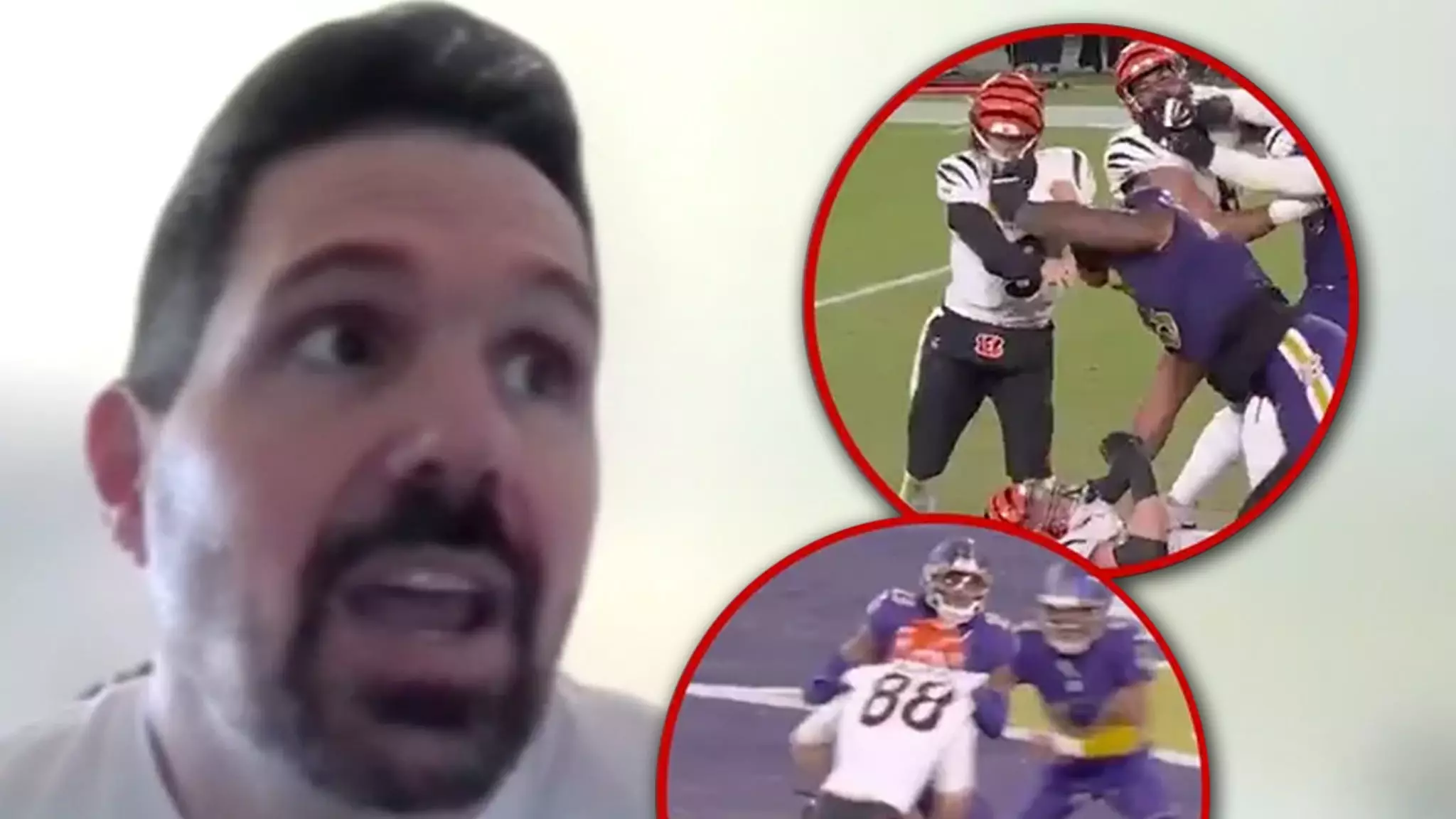The recent game between the Baltimore Ravens and Cincinnati Bengals has sparked intense debate within the football community, particularly following two key missed calls during a pivotal moment of the match. As fans, players, and analysts grapple with the implications of these errors, the need for a reassessment of the NFL’s officiating protocols becomes increasingly evident. This situation rises beyond mere frustration; it highlights systemic issues that, if left unaddressed, could tarnish the integrity of the game.
To shed light on the ongoing discourse regarding officiating standards, former NFL VP of Officiating Dean Blandino addressed these concerns on the TMZ Sports TV show. His experience provides a unique perspective on how the league can adapt to improve umpiring standards. Blandino advocated for an expansion of replay capabilities, illustrating how advancements in technology should be leveraged to aid officials in making accurate decisions. He noted that initial resistance to replay mechanisms stemmed from fears of scrutiny, but the current technological landscape offers a plethora of resources that could enhance the officiating process.
Blandino emphasized, “The officials desire to get it right more than anyone else.” This assertion points to the often-overlooked human element within officiating. Referees and officials are not mere enforcers of the rules; they are dedicated professionals invested in the game, desiring fairness and accuracy in every judgment made.
Despite the official desire for correctness, the devastating effect of missed calls manifests in tangible outcomes that impact teams’ standings and players’ careers. A critical question emerges: What can be done to amend such glaring errors after they occur? Regrettably, the immediacy of a solution eludes us, as the Bengals must reconcile their loss with the referee’s decisions. Such realities underline the importance of reforming the evaluation system for officials.
Following contentious games, officials undergo a strict grading process based on their performances. Blandino mentioned the likelihood of “downgrades” for game officials after missed calls, indicating that accountability exists within the officiating ranks. However, this punitive approach does not address the systemic deficiencies that allow for such mistakes. It prompts further inquiry: how can the league implement a system of continuous improvement rather than merely reactive accountability?
To preserve the essence of the game, the NFL must embrace a forward-thinking approach to officiating. The integration of expanded replay capabilities should not be viewed as a burden but rather as an opportunity for officials to enhance their accuracy and confidence in making crucial calls.
Moreover, consistent training, feedback, and resources are essential for officials’ ongoing development. By fostering an environment where officials feel empowered to utilize all available tools, the league can mitigate the risk of future blunders, restoring faith in the integrity of the game.
The dialogue surrounding these recent officiating controversies is not merely about individual games; it represents a crucial juncture for the NFL. By proactively embracing technology, enhancing training, and refining evaluative processes, the league can move toward a more just and reliable framework for officiating—one that benefits players, coaches, and fans alike.

